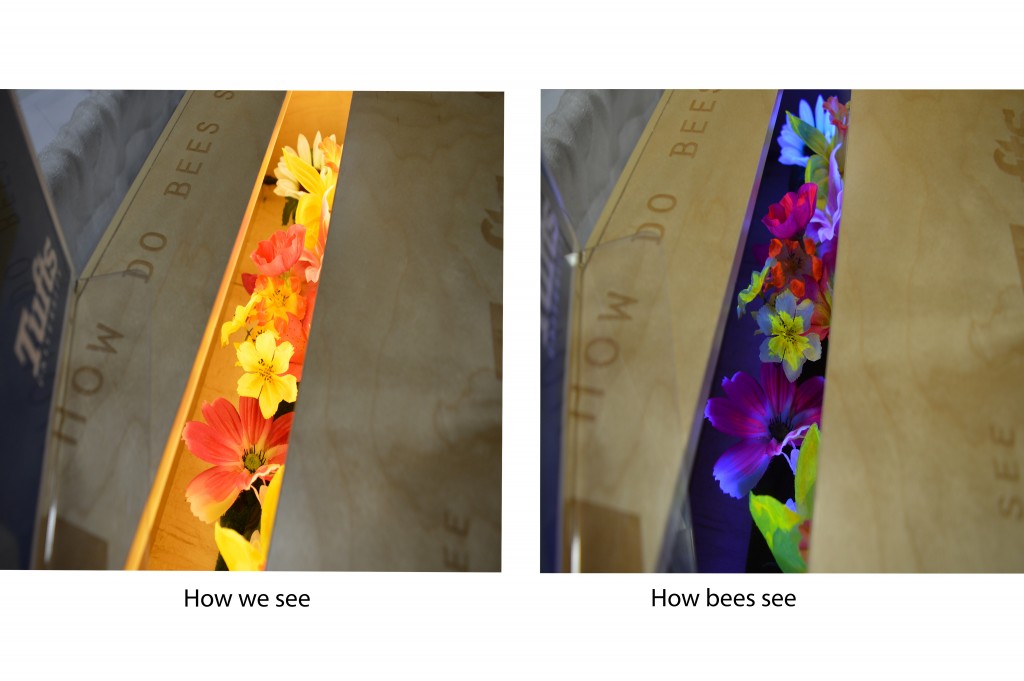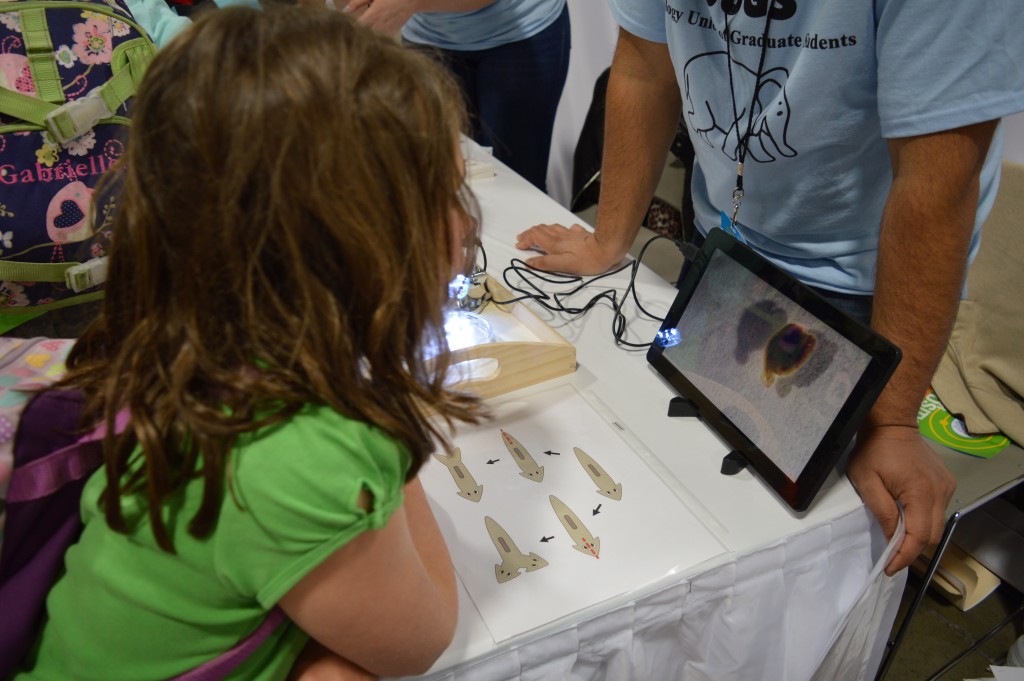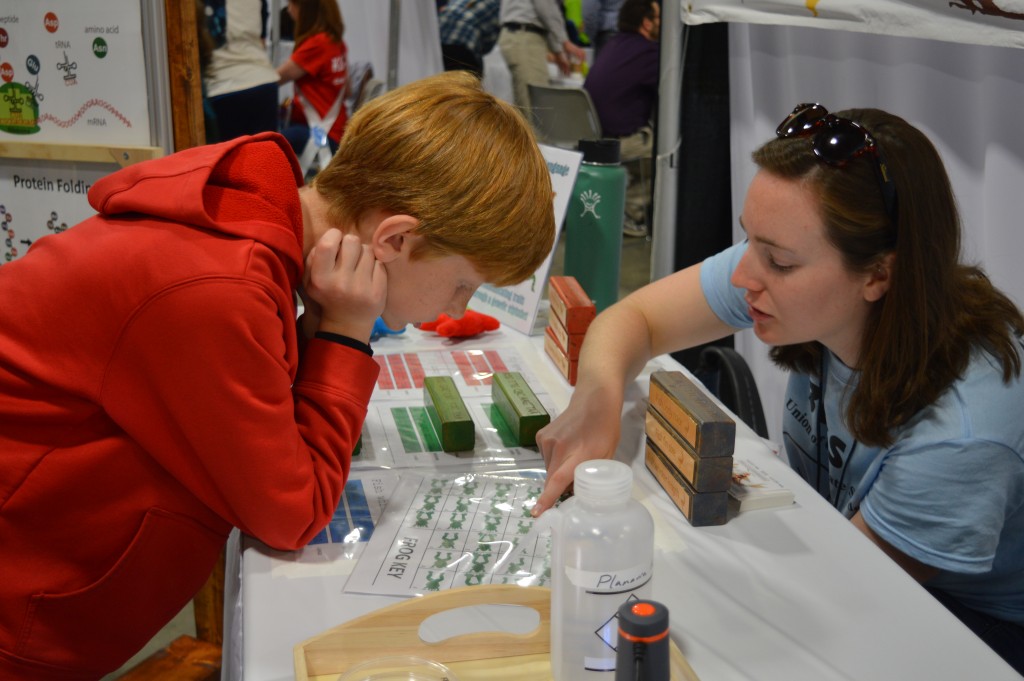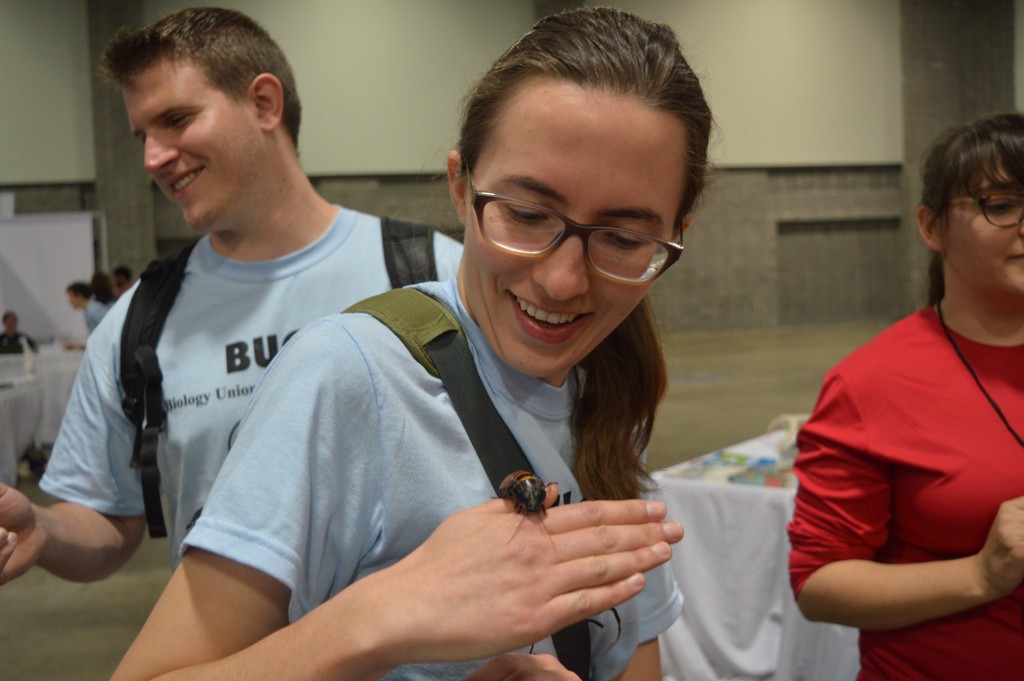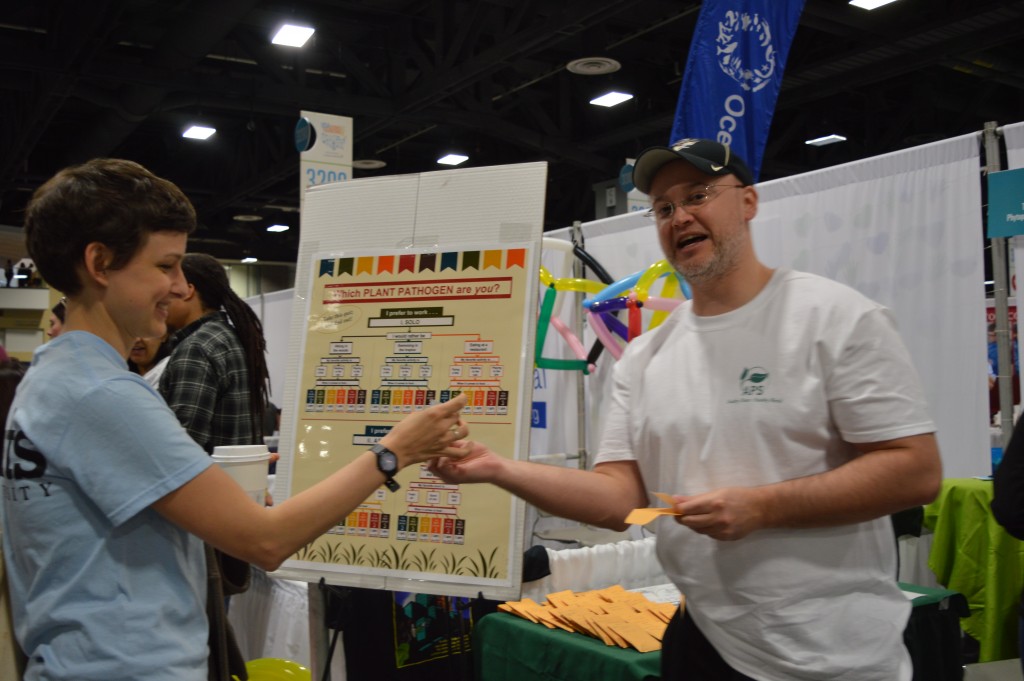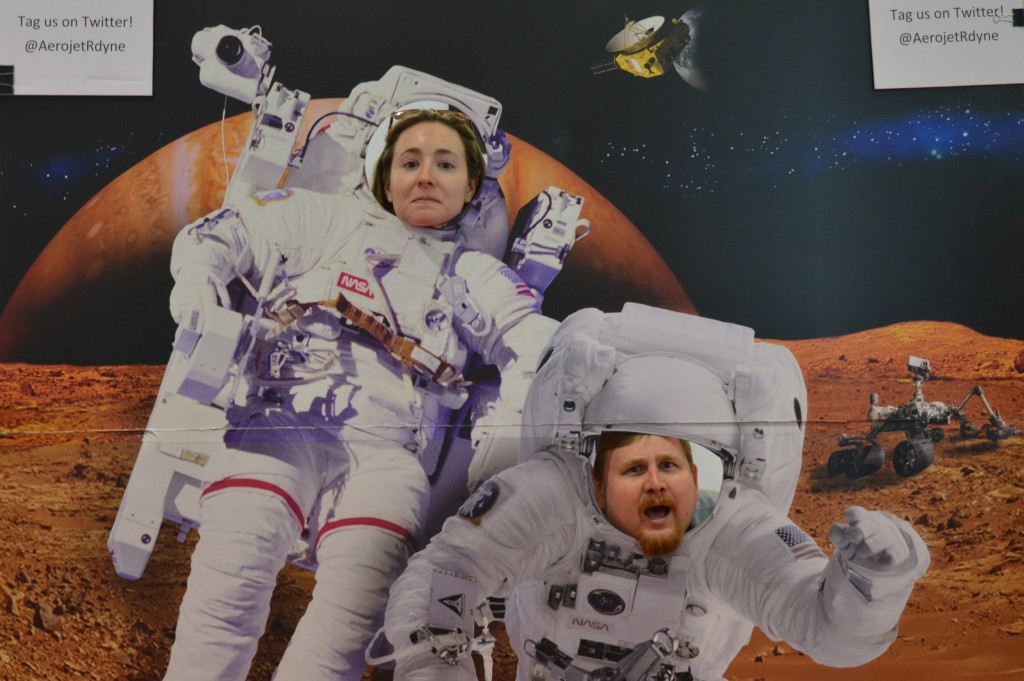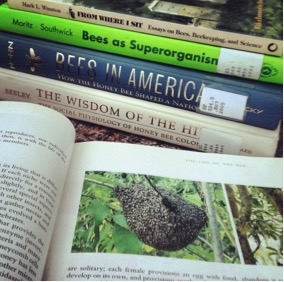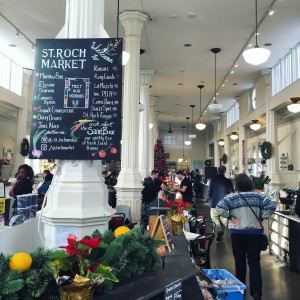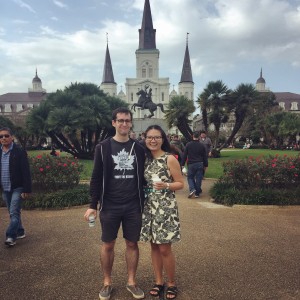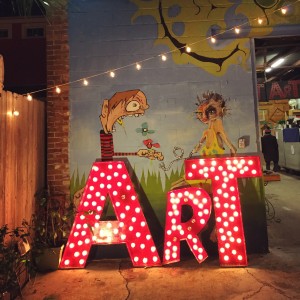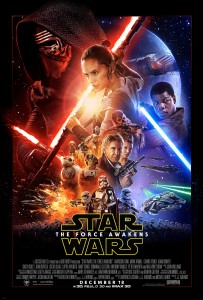Written by Rachael Bonoan, Biology Ph.D. Candidate
At Tufts, the Graduate Student Council (GSC) sponsors twenty-one (and counting!) Graduate Student Organizations (GSOs). Most GSOs are departmental, such as the Tufts English Graduate Organization, but there are also interest-based GSOs such as the Tufts Graduate Student Anime Club. Being a part of a GSO is a great way to get to know people both inside and outside your department—any GSO event that is funded by the GSC is required to be open to all Tufts graduate students! For example, the Biology Union of Graduate Students (BUGS) hosted an ice cream social on May 13, 2016. Since the event is funded by the GSC, the event goes on the Tufts GSC Online Calendar and all graduate students are welcome! There’s almost always something going on!
Being a part of a GSO is also a great way to DO things. Last month, I attended the USA Science and Engineering Festival in Washington D.C. with my GSO, BUGS. The festival’s mission is one close to my heart: “to stimulate and sustain the interest of our nation’s youth in science, technology, engineering, and math (STEM).” Last year, two BUGS members, Emily Pitcairn and Kyle Jewhurst, put together a BUGS USA Science and Engineering Festival committee. Over the course of a year, our committee got broken up into sub-committees, each in charge of a particular aspect of planning for the festival. When it was time to attend the festival, BUGS had three interactive activities to present at our booth. All of our activities went along with our booth’s theme: “Life is communication.”
During the 3-day long festival (which hosted over 3,000 interactive STEM activities and 50 stage shows), an estimated 350,000+ visitors came by our booth! Thankfully, we had a team of twelve BUGS at the festival. Three BUGS at a time took shifts (about two hours long) at our booth—taking turns kept us refreshed and focused on the activity—and outreach!—at hand.
The activity my sub-committee worked on was The Bee Box. The Bee Box allowed visitors to see how bees see by shining a blacklight on a “garden” inside the box. The blacklight revealed UV patterns on flowers (called nectar guides) that bees use to find pollen and nectar. Without the help of the special light, these patterns are invisible to us!
We also brought flatworms (planaria) that allowed visitors to learn about cellular communication. If a flat worm is cut in half, the head portion grows another tail and the tail portion grows another head. You end up with two healthy, functional flatworms! If you block cellular communication with certain drugs however, you will end up with double headed or double tailed worms. Visitors used a microscope hooked up to a tablet to investigate these worms for themselves.
Our third interactive activity taught visitors about the communication between DNA and RNA. Visitors used DNA “building blocks” to build their own model organism.
While off duty, we wandered around the festival. Among other things, we got to hold hissing cockroaches, found out which plant pathogen our personality matched, and visited Mars. We also got to hear Wil Wheaton (Stand by Me, Stark Trek: The Next Generation, Big Bang Theory) give an inspiring talk about the role of art in science. Without art, it’s difficult to get the general public excited and interested in science! (Wil’s first exposure to the awesome-ness of science was watching Stark Trek.) As a field biologist myself, I have seen how important creativity is in science as well. (I spend a lot of time at the hardware store during the field season.)
In the end, the festival was a success—for for both the science communicator and the science nerd in me—and and if it hadn’t been for BUGS, I would not have made it there! The festival is held every two years—we’re already looking forward to 2018!
Other Tufts groups represented at the festival were the Center for Engineering Education and Outreach, the DevTech Research Group, the Cummings School of Veterinary Medicine, the Medical School Center for Translational Science Education, and the Bioinformatics Inquiry through Sequencing (BioSeq) group.
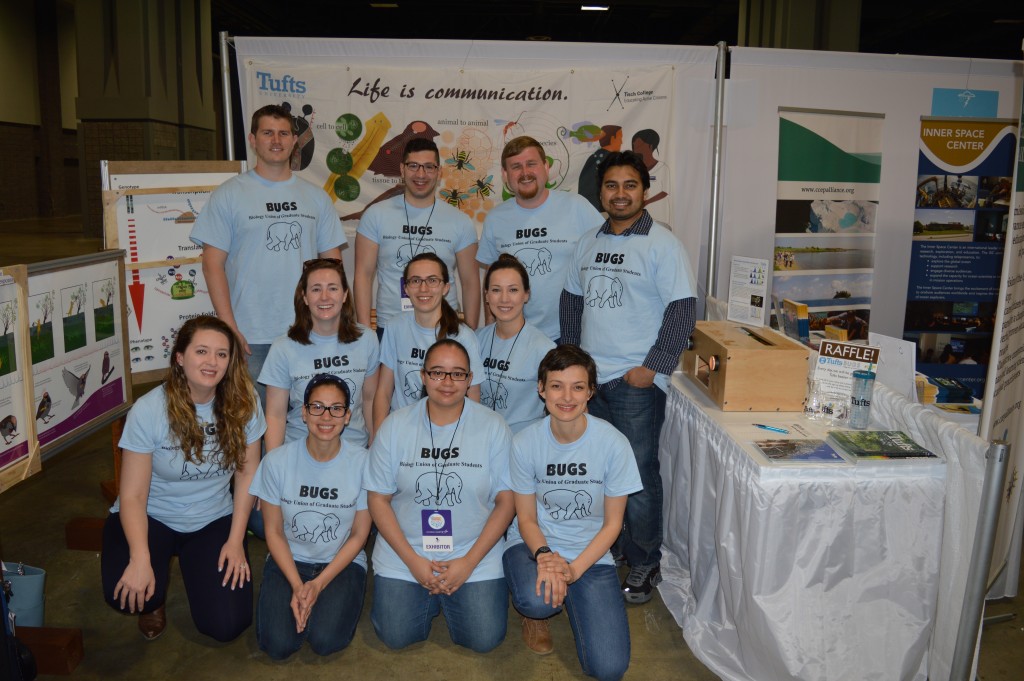
From left to right: (TOP) Marcus Lehr, Varandt Khodaverdian, Kyle Jewhurst, Ishtiaque Quasem (MIDDLE) Taylor Sands-Marcinkowski, Brenna Gormally, Clare Parker, Emily Pitcairn (BOTTOM) Rachael Bonoan, Kaylinnette Pinet, Elizabeth Landis


